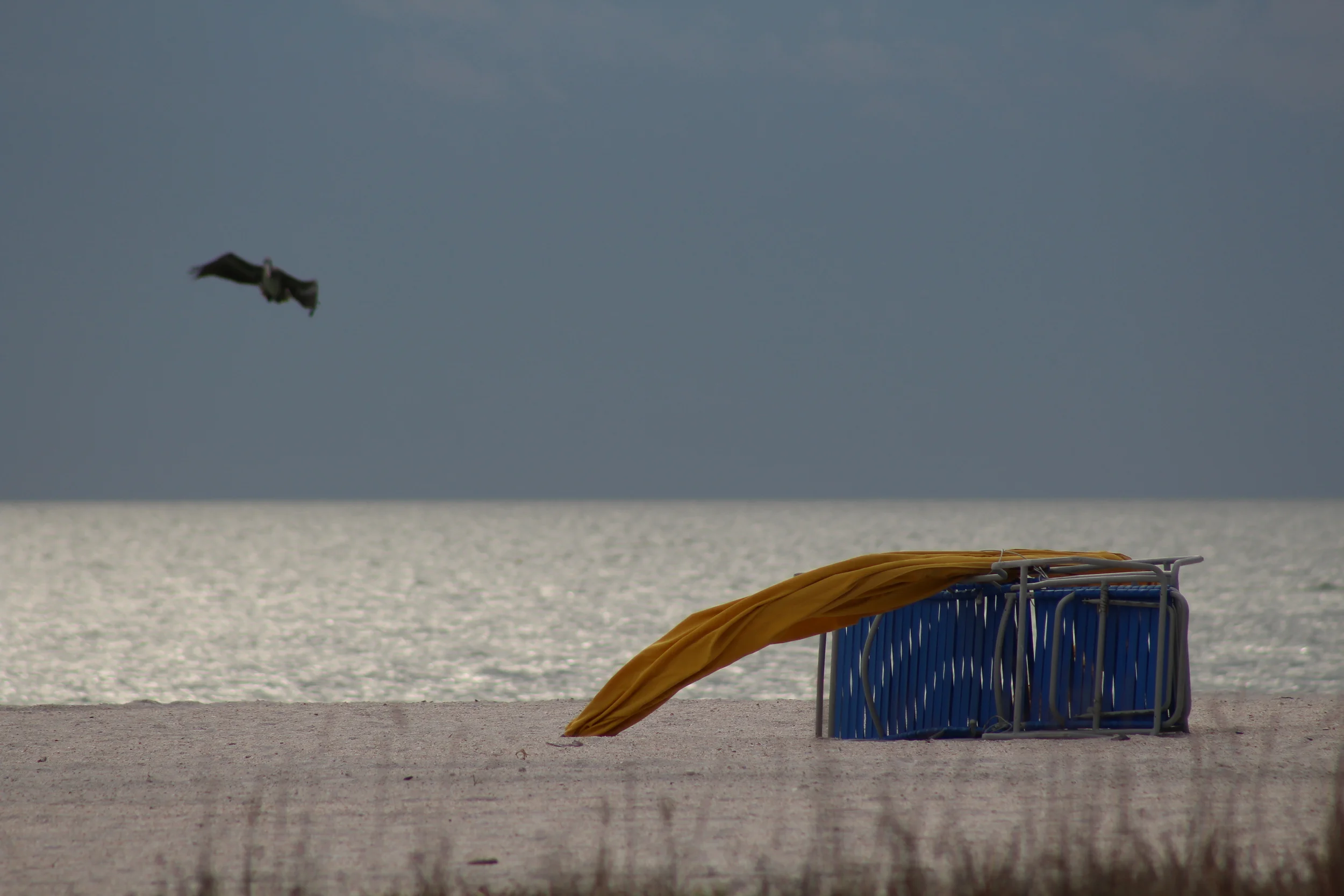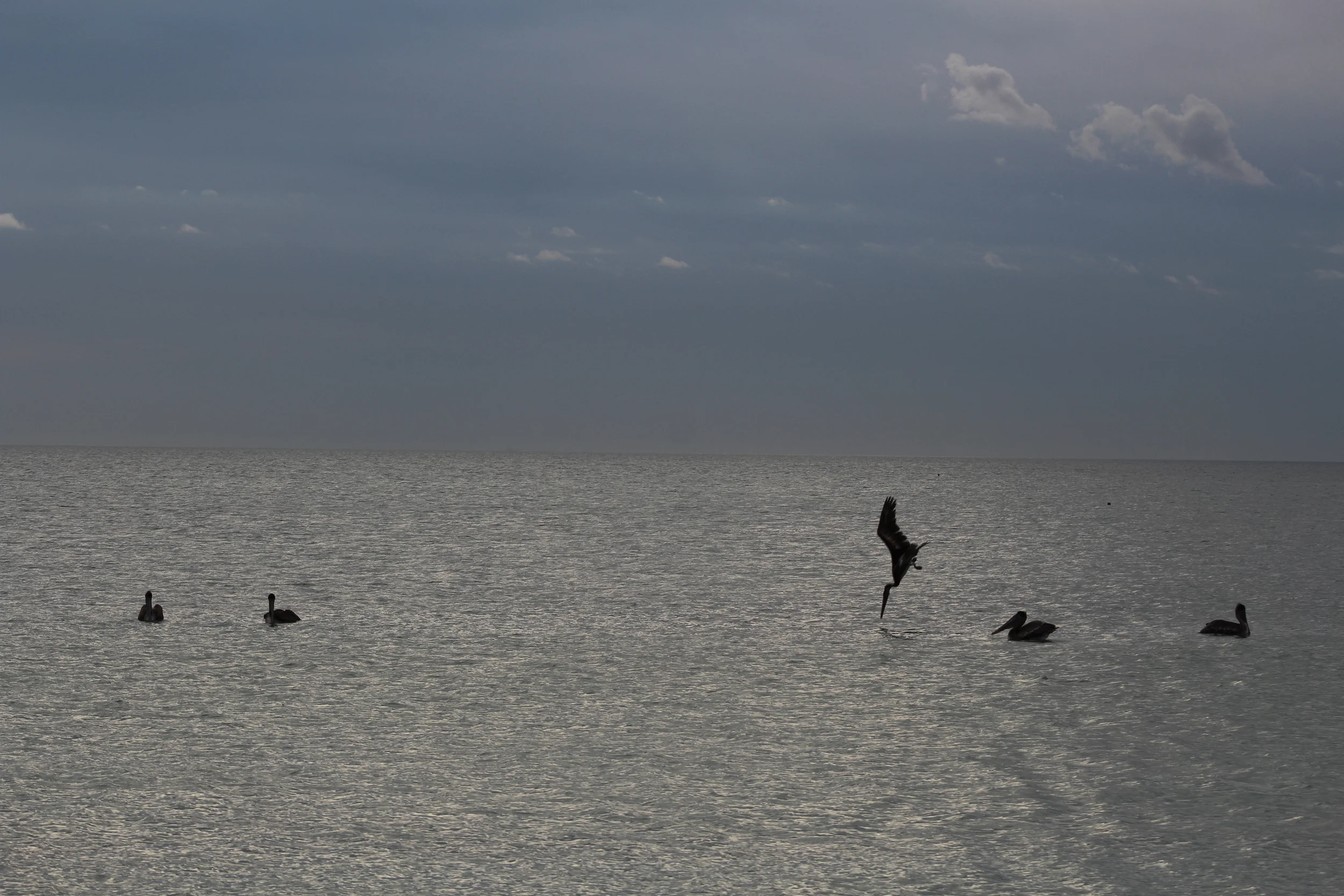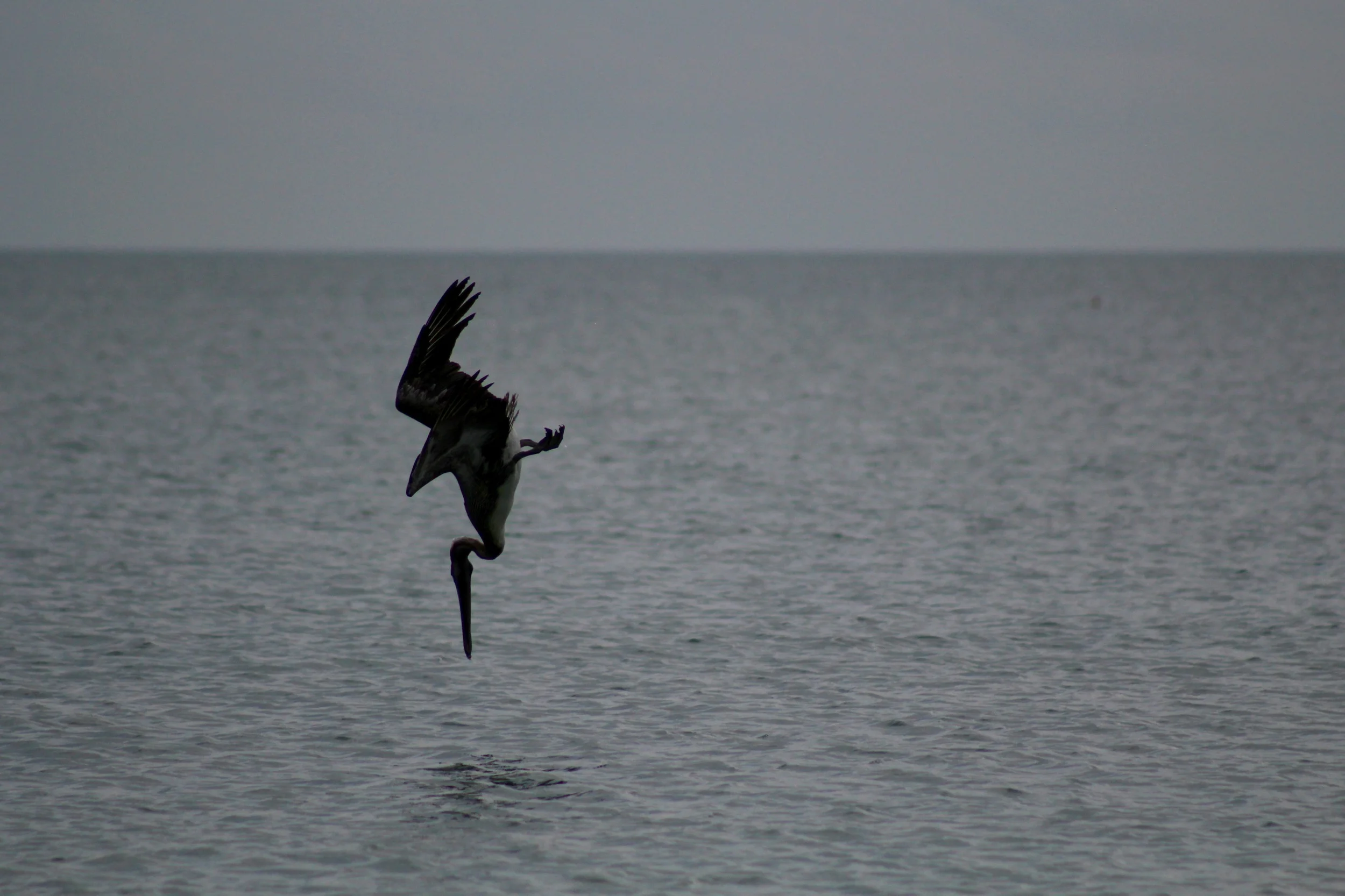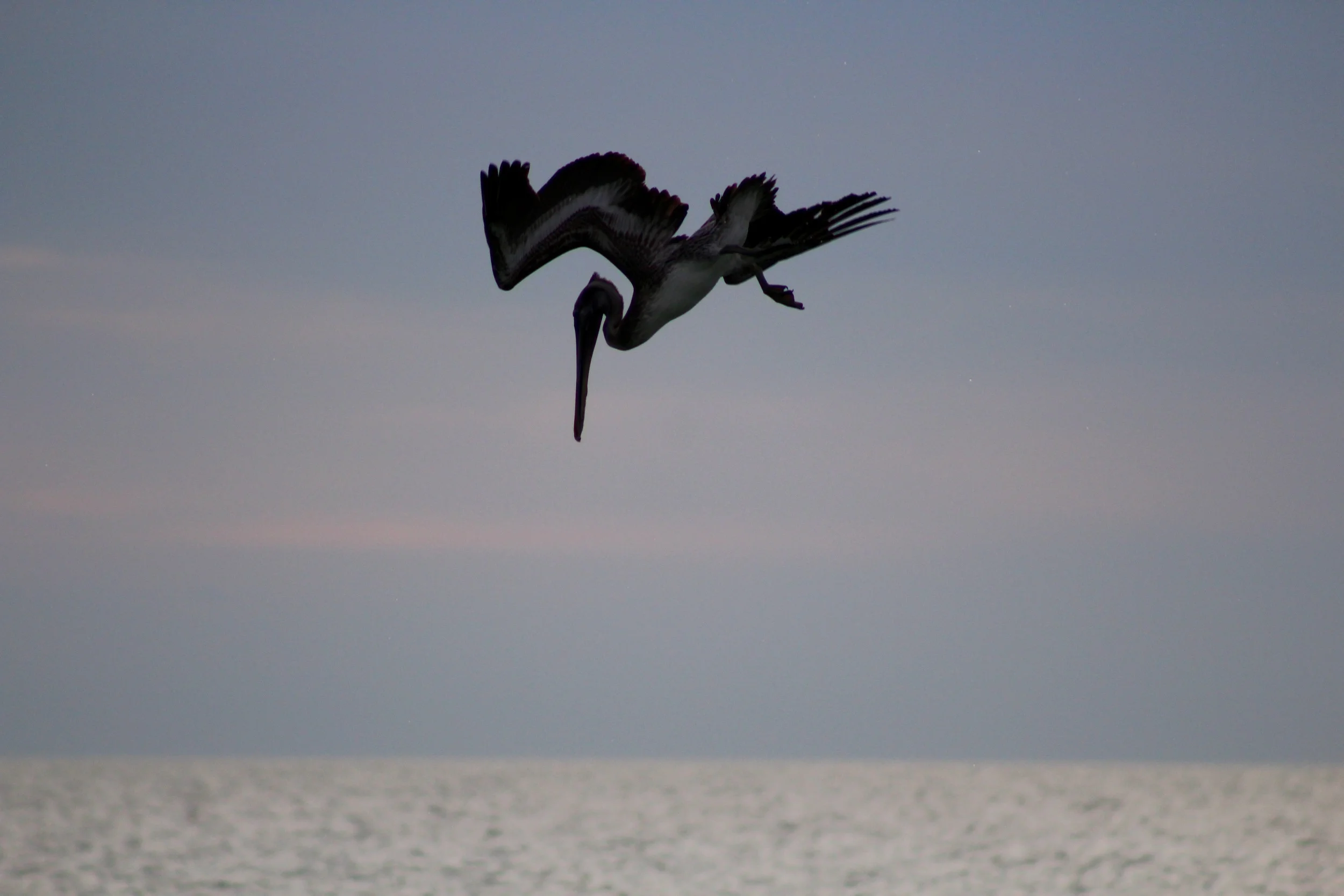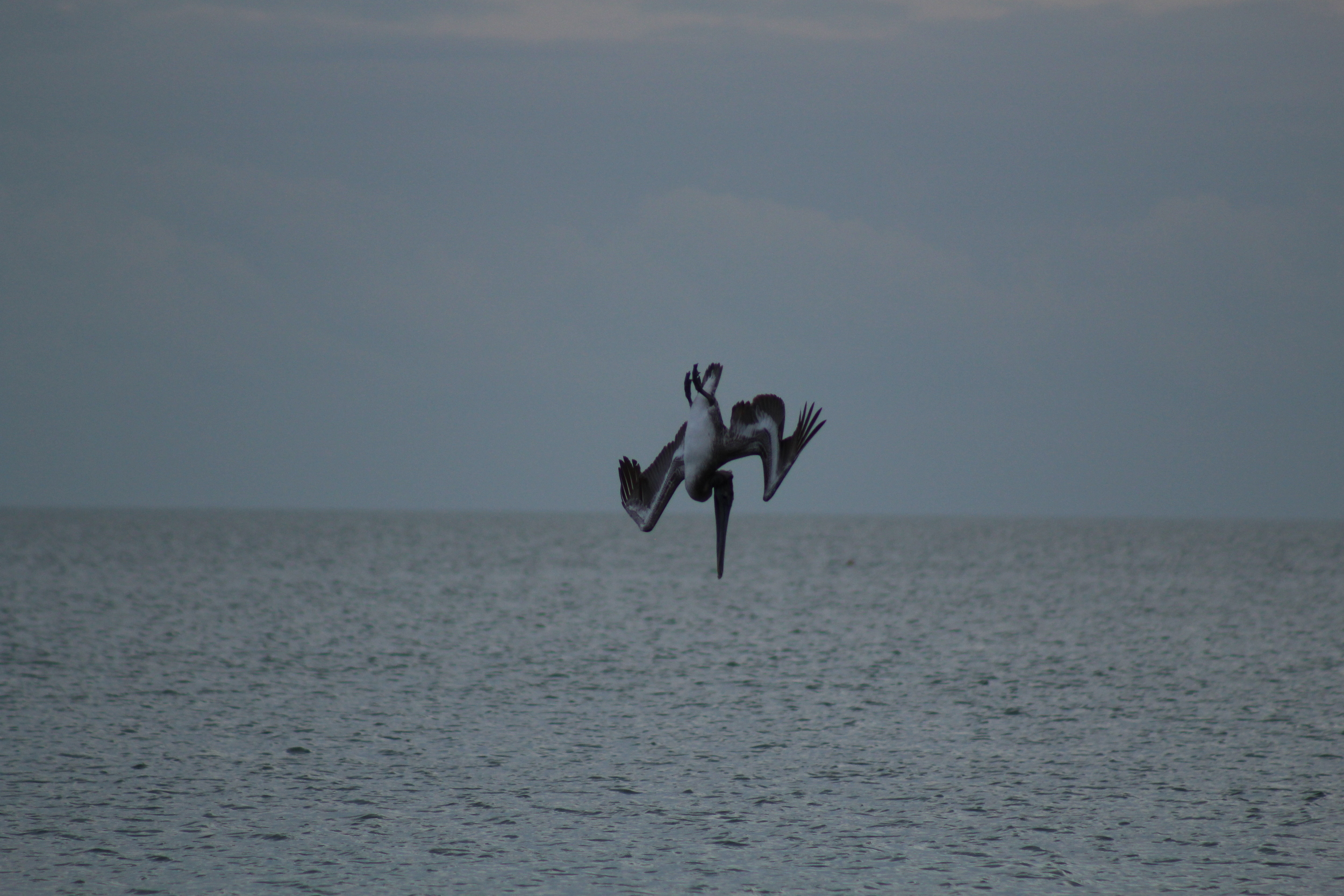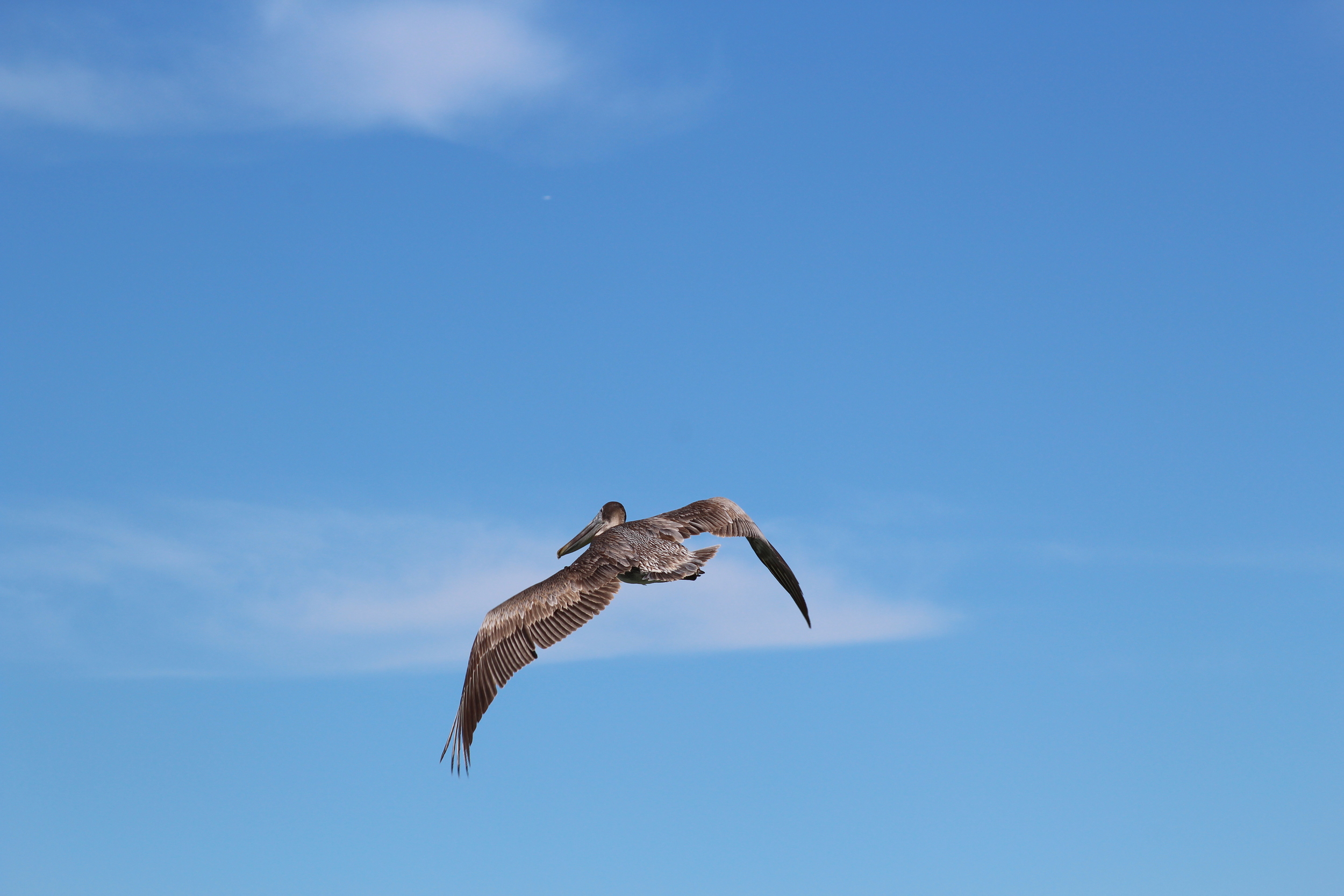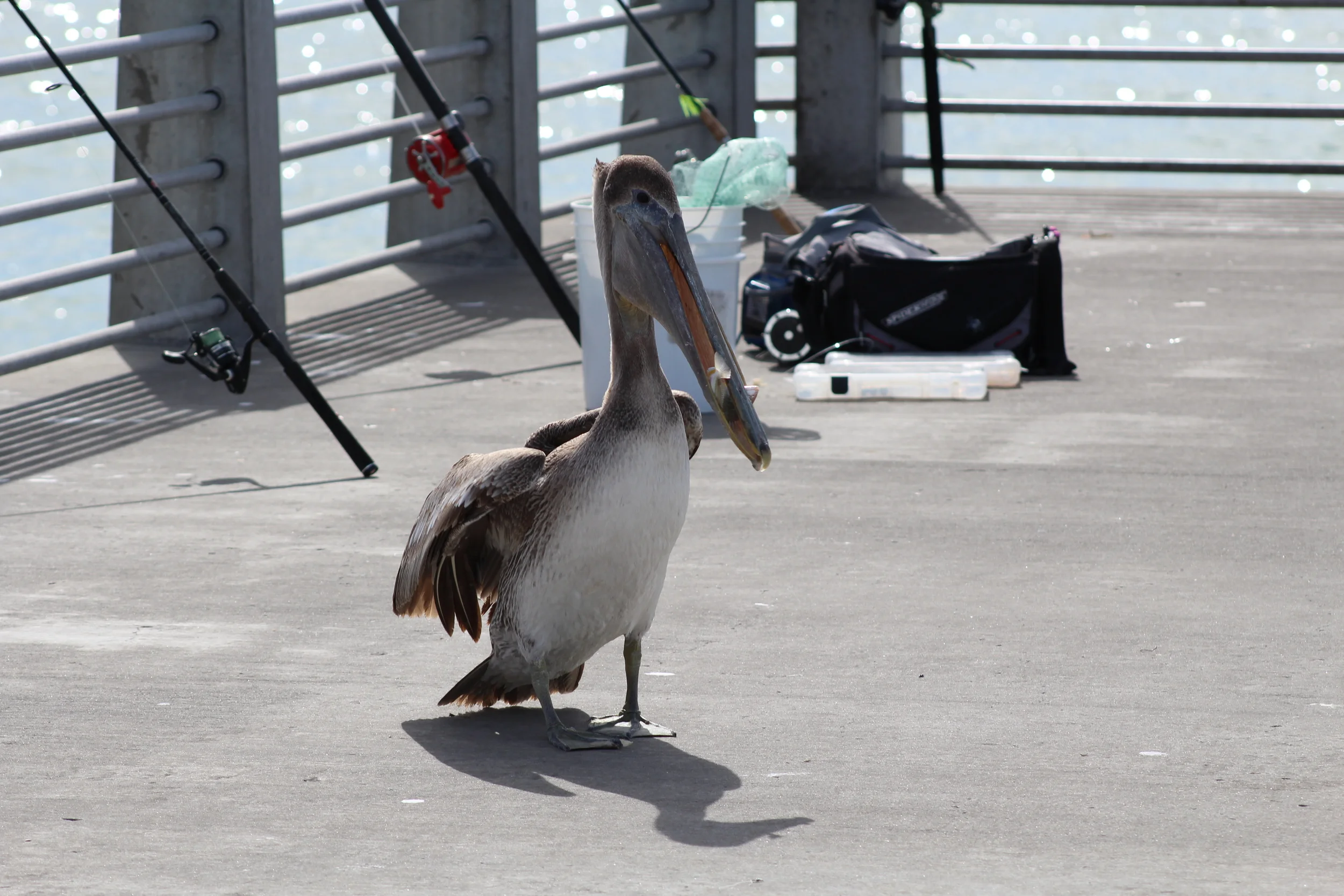A Homecoming on Florida's Gulf Coast
It was cold in Florida. I know, I know: you don’t have much sympathy for a guy who spends a week in Florida in January. And that’s fair: I did come back tan after all, and temperatures, while staying mostly in the low sixties, did climb into the seventies for part of the weekend.
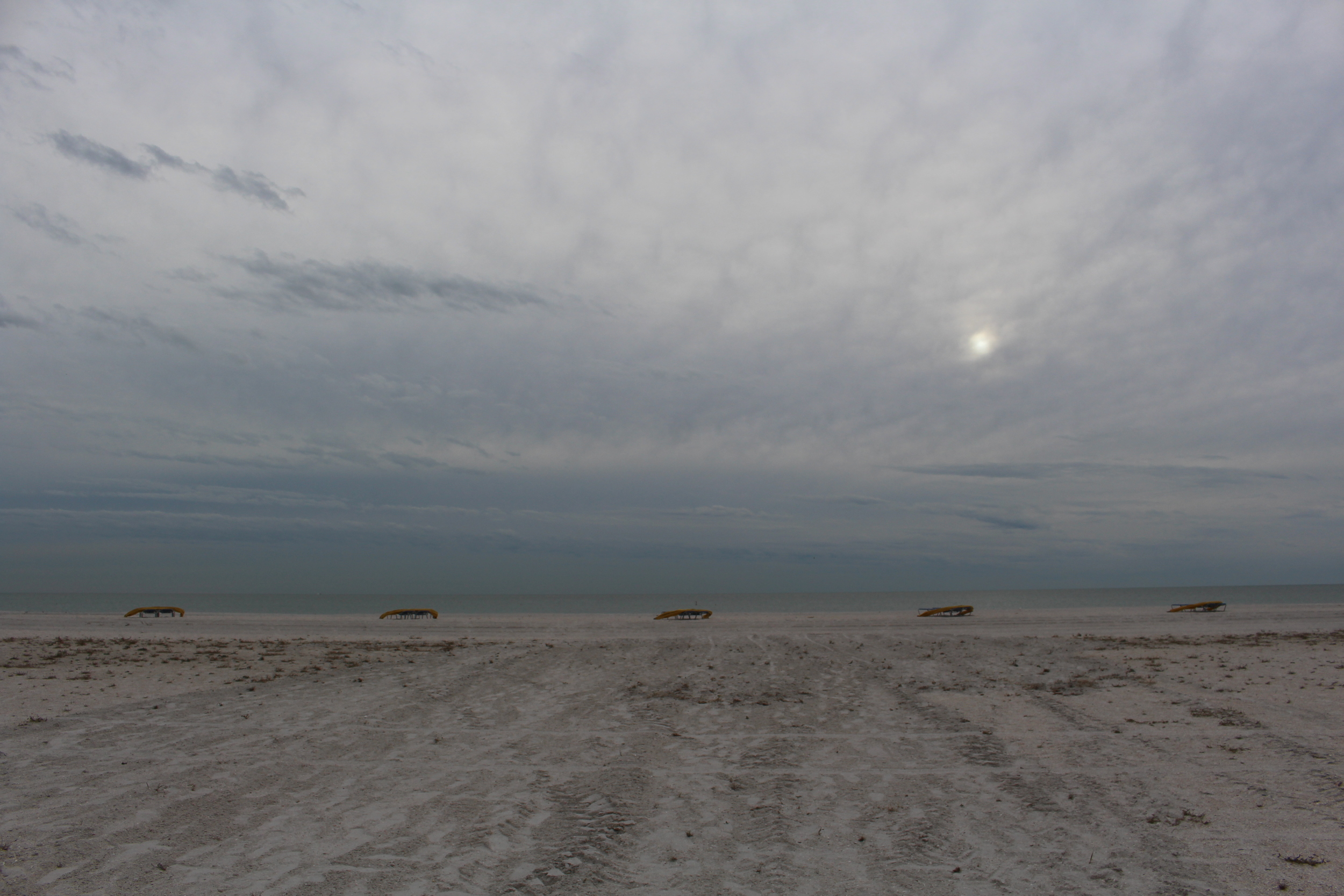
As I was putting together objectives and a long to-do list for 2016, there was one that seemed to scream its way to the top of the list: get away for a week, and take a stack of books and just read. When I realized I could book a Southwest flight to sunshine for fewer than six thousand Rapid Rewards miles, the decision was made.
Going to Florida was perhaps the sentimental choice. My grandparents used to own a home just south of Tampa Bay in Bradenton, and some of my best memories from childhood include flying down to visit, escaping the gloomy Ohio winter to the liberating sting of sunburns, orange ice cream from Mixon’s, and fresh grapefruit off the tree in the backyard for breakfast. And after I finished college, my first paid political job sent me back to the region for a three-month assignment as a field rep.
While it wasn’t sunny every day during my visit either, it was worth the focused time on reading and enjoying the outdoors. The trip to Treasure Island, Florida, left me with observations about life, and conclusions for work in politics.
SPONTANEITY BRINGS LIFE
It was cold, rainy, and the wind was blowing hard one morning. I had already spent more than two days reading, and now I was short on time to meet up with family over the weekend. But the beach was calling. I told myself I wasn’t going to run . . . just walk out to the beach for a moment and back while the rain seemed to have let up. Only a fool would have thought I’d stick to that decision though. There are few things in life better than a barefoot run on the beach in the waves, and even with the wind coming in hard off the Gulf, the air was warmer today. I kicked off my flip-flops and couldn’t resist. I took off running down the beach. A half mile turned into a mile, still short but long enough to breathe hard in the wind that brought the waves to life again. The day before, they had only managed a lethargic lap against the sand, barely rippling at all.
The rain came again, let loose by the moving, wispy, gray prison overhead. It was a total downpour. It was perfect, really. How many times, working on the Hill, had I wished I could run outside into the rain while it poured, suit, dress shoes, and all, and return drenched, dripping drops of life all over the dead places buried in the cubicles of Congressional politics?
Somehow we’ve turned what could be the art of representative democracy into a destructive force, and you can see the devastation in the eyes of the people who work in American politics if you take the time to notice.
I know because I’ve lived it. Too often the “excitement” of being in the Capitol was simply a self-inflated need for importance. But when situational reality sets in, you realize how lifeless all the self-inflated importance of the Capitol really is.
Once, when the repeated cycle of genuinely unproductive meetings and piles of inconsequential letters was turning flawlessly, a friend invited me to a screening of The Hornet’s Nest in a small auditorium down Pennsylvania Avenue. I decided to walk down from the Hill. It was raining, and despite my umbrella, my suit pants and shoes were soaked. It was good to be alive.
Running, over the past few years especially, has become therapeutic. Sometimes I can just sense that it’s time to head out for a ten mile run. One morning later in the Florida trip, I ran out of my motel and south to the point where Treasure Island is separated from St. Pete, then back all the way to the north end, crossing the bridge and running up Madeira Beach. The air was chilly until the sun broke through the clouds. By the time I finished the ten miles and stood staring at the sunlight dancing on the shallow, greenish-blue water, I was warm enough that the next move was written for me: it was time for an “ice bath” in the Gulf of Mexico.
Stripping down to just my running shorts, I waded in, deep enough for the water to rise well above my knees, and slowly “adjusted” to the cold. But there was one more step I had to face, or I wouldn’t be able to live with myself. Eyeing the next incoming wave, I dunked myself all the way in, jolting back to my feet because of the momentary stinging cold. Refreshed and invigorated, it was time to keep reading.
We are beginning to learn that our brains are hardwired to react positively to water and that being near it can calm and connect us, increase innovation and insight, and even heal what’s broken. Healthy water is crucial to our physiological and psychological well-being, as well as our ecology and economy. We have a ‘blue mind’ – and it’s perfectly tailored to make us happy in all sorts of ways that go far beyond relaxing in the surf, listening to the murmur of a stream, or floating quietly in a pool. (Foreword to Blue Mind: The Surprising Science That Shows How Being Near, In, On, or Under Water Can Make You Happier, Healthier, More Connected, and Better at What You Do, pp. x-xi).
“Heal what’s broken?” Whoa, that’s a strong claim. But. . . what if? What if jumping into the Gulf of Mexico in January, running in the rain, or resting beside an ocean, lake, or pool holds part of the answer for healing what’s broken in politics? I don’t have all the answers, but this much I know: when you walk away from the waves, sea water running down your face and the taste of salt on your lips, you finally get to be human again. You can stop arguing in that moment whether you’re “Conservative” enough or if you’re coming across as “too Establishment”. When you stop and think about it, humans might not share the exact same views on policy, but why do we have to stop being human in the process? Why do we have to fret over belonging to a paranoid tribe? Maybe the call to love our enemies, for followers of Jesus, was really a call to share their humanity all along, seeing them as neighbors instead of rivals in a search for power and influence. But how do we move towards the humility and inner peace it will take to do so?
OUR WORK CAN REFLECT TRUTH AND BEAUTY AS CLEARLY AS NATURE
One evening when I walked out to the shore for the coming sunset, there were half a dozen or more pelicans bobbing in the water, taking off from its surface like winged aircraft, and after reaching a low cruising altitude, turning face down in the air and dive bombing straight into the Gulf. Over and over, I watched them take off, sweep across the water just beyond the shoreline, then plummet into a splash, quickly reappearing choking down the catch of the day. Their flight, complete with the in-air turn, was beautiful. Each dive seemed to strike true to its mark.
But there was another pelican sighting another day. As I walked out onto the long pier stretching into the breeze and the waves of the Gulf at Fort DeSoto Park, there was a lone pelican, at first glance perhaps just enjoying the sunshine on the pier, and the company of people there too. Ah, but of course he was enjoying the company of people there: many of them were fishing! At the sight of a catch, he would outstretch his massive wings and lurch forward, swooping across the pier, ready to take—if necessary—the next bite of his morning snack.
“I don’t like that thing so close to me,” one lady said as she held her rod over the rail, a small fish flopping for its life on the end of her line. “I don’t like how aggressive he is.” The gentleman alongside her carefully removed the fish from her hook and tossed it to the pelican, which devoured it immediately.
The contrast between the two feasts couldn’t be clearer. One was beautiful pursuit—made in harmony with fellow birds. The other, an agitated waiting, made alone in isolation. Too often in politics, we settle for expediency, choosing to represent the anger that seems to be constantly boiling in the country instead of leading our fellow Americans to healing through freedom, to a rich, full life.
Sure, we get re-elected, we get the proverbial fish, but at what cost? When our crafted agendas win an election at the expense of the opposition, with the names of less than all of our constituents included in the vision for the future (if there is one), it’s no wonder running into the rain with a suit on sounds like the wisest choice of action on any given work day.
So how do we survive—especially considering it’s hard to campaign and work out on the beach at the same time? How do we survive in a culture that seems bent on destroying anyone who doesn’t get top marks on their scorecard? Especially for followers of Jesus who see all work as ministry, the answer is powerful:
Compassion must become the core, and even the nature, of authority. Christian leaders are people of God only insofar as they are able to make the compassion of God with humanity—which is visible in Jesus Christ—credible in their own world.
Compassionate leaders stand in the midst of their people but do not get caught in the conformist forces of the peer group, because through their compassion they are able to avoid the distance of pity as well as the exclusiveness of sympathy. Compassion is born when we discover in the center of our own existence, not only that God is God and humans are human, but also that our neighbor really is our fellow human being.
Through compassion it is possible to recognize that the craving for love that people feel resides also in our own hearts, that the cruelty the world knows all too well is also rooted in our own impulses. Through compassion we also sense our hope for forgiveness in our friends’ eyes and our hatred in their bitter mouths. When they kill, we know that we could have done it; when they give life, we know that we can do the same. For a compassionate person nothing human is alien: no joy and no sorrow, no way of living and no way of dying.
This compassion is authority because it does not tolerate the pressures of the in-group, but breaks through the boundaries between languages and countries, rich and poor, educated and illiterate. This compassion pulls people away from the fearful clique into the larger world where they can see that every human face is the face of a neighbor. (The Wounded Healer, pp. 45-46).
But what if compassion can’t just be turned on like a light switch? What if it’s not as easy as a quick ice bath in the ocean? What if soaking up nature doesn’t yield all the creative inspiration necessary for the beautiful pursuit like we hope?
PERSEVERE THROUGH RESISTANCE
Resistance cannot be seen, touched, heard, or smelled. But it can be felt. We experience it as an energy field radiating from a work-in-potential. It’s a repelling force. It’s negative. Its aim is to shove us away, distract us, prevent us from doing our work. (The War of Art, p. 7).
The artist cannot look to others to validate his efforts or his calling. If you don’t believe me, ask Van Gogh, who produced masterpiece after masterpiece and never found a buyer in his whole life.
The artist must operate territorially. He must do his work for its own sake.
To labor in the arts for any reason other than love is prostitution. (The War of Art, pp. 150-151).
The hack is like the politician who consults the polls before he takes a position. He’s a demagogue. He panders.
It can pay off, being a hack. Given the depraved state of American culture, a slick dude can make millions being a hack. But even if you succeed, you lose, because you’ve sold out your Muse, and your Muse is you, the best part of yourself, where your finest and only true work comes from. (The War of Art, pp. 152-153).
I could quote the entire book. It’s not that we need to aimlessly wander outdoors, or be nice to people who disagree with us so we can . . . be more nice. Rather, our work in politics needs to become an entirely new pursuit: one of restoration, and homecoming.
To be honest, after a week in Florida I was driving to the airport to fly home to Alexandria and I felt restless, still unsure in a way if the trip was a wise choice, if it was worth it—if I had actually found stillness, or if I had wasted a week chasing ambiguous desires to get away from Washington.
I had a book to finish on the plane though, and I was eager to get back into it. I was reading Henri Nouwen’s The Return of the Prodigal Son, and had stopped just short of a chapter on how the elder brother can return home (if you’re unfamiliar with the story, I recommend reading the book). He writes about how to be brought home.
Although we are incapable of liberating ourselves from our frozen anger, we can allow ourselves to be found by God and healed by his love through the concrete and daily practice of trust and gratitude. Trust and gratitude are the disciplines for the conversion of the elder son. (p. 84).
And then he writes this:
Trust is that deep inner conviction that the Father wants me home. (p. 84).
As the light over the Gulf of Mexico fled, trailing the sun far beyond the horizon, I had to put the book down for a moment and just think about the significance of it, and the inner peace that came roaring to life like a jet engine. We spend so much time trying to out-shout each other, manipulating reality with our moralism and our scorecards. But the story of time is about being human with our neighbors, a great homecoming to our true Father, and a feast. When I came home, I worked for weeks and weeks from a point of rest, following a natural rhythm established during that trip. But I’m confident this experience isn’t just for me: the truth is, we need a new narrative for political work, one that can give us inner peace as we persevere through resistance to that homecoming, to that feast where we will raise a glass and toast to our King, LIBERATUS—we are set free!
“Trust is that deep inner conviction that the Father wants me home.”
WEEKLY ACTION ITEM:
If you're feeling stale in your work, try doing something spontaneous to get the life flowing again. See if it opens you up to more compassion than you thought possible in political work. Where do you need to fight through resistance to hold on to that compassion in light of the feast that's coming?
LIBERATUS is a weekly journal creatively pursuing Truth and Beauty by empowering writers in American politics to tell the story of healing through freedom. You can join the pursuit by applying to write, subscribing to the journal, or by funding the movement by donating monthly or by making a purchase in our store.
ISSUE 012: THE GREAT OUTDOORS, PART 2



